This is my code to make a request to an API:
import 'dart:async';
import 'dart:convert';
import 'dart:io';
import 'package:http/http.dart' as http;
Future<http.Response> postRequest () async {
var url ='https://pae.ipportalegre.pt/testes2/wsjson/api/app/ws-authenticate';
var body = jsonEncode({ 'data': { 'apikey': '12345678901234567890' } });
print("Body: " + body);
http.post(url,
headers: {"Content-Type": "application/json"},
body: body
).then((http.Response response) {
print("Response status: ${response.statusCode}");
print("Response body: ${response.contentLength}");
print(response.headers);
print(response.request);
});
}
I have a problem with the response from the request, where its suppose to have a body with json, but something went wrong and i think is with the json that i send on the body request, because it is a nested json object, and the value of the key is a json object. i would love to know how i can parse the json right and insert into body of the request.
this is the header response:
{set-cookie: JSESSIONID=DA65FBCBA2796D173F8C8D78AD87F9AD;path=/testes2/;HttpOnly, last-modified: Thu, 10 May 2018 17:15:13 GMT, cache-control: no-store, no-cache, must-revalidate, max-age=0, post-check=0, pre-check=0, date: Thu, 10 May 2018 17:15:13 GMT, content-length: 0, pragma: no-cache, content-type: text/html, server: Apache-Coyote/1.1, expires: Tue, 03 Jul 2001 06:00:00 GMT}
and this is how is suppose to be:
Server: Apache-Coyote/1.1
Expires: Tue, 03 Jul 2001 06:00:00 GMT
Last-Modified: Thu, 10 May 2018 17:17:07 GMT
Cache-Control: no-store, no-cache, must-revalidate, max-age=0, post-check=0, pre-check=0
Pragma: no-cache
Content-Type: application/json;charset=UTF-8
Vary: Accept-Encoding
Set-Cookie: JSESSIONID=84813CC68E0E8EA6021CB0B4C2F245BC;path=/testes2/;HttpOnly
Keep-Alive: timeout=5, max=100
Connection: Keep-Alive
Transfer-Encoding: chunked
the body response came empty and i think its because the body i sent on the request, can anyone help me with the nested json object in value??
SCREENSHOT OF POSTMAN:

